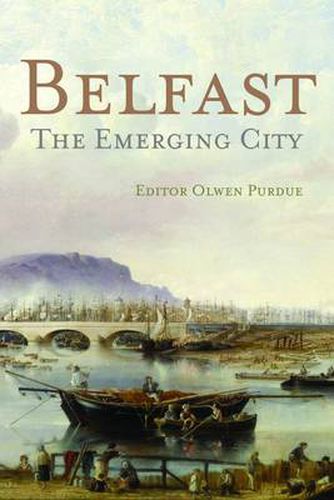Readings Newsletter
Become a Readings Member to make your shopping experience even easier.
Sign in or sign up for free!
You’re not far away from qualifying for FREE standard shipping within Australia
You’ve qualified for FREE standard shipping within Australia
The cart is loading…






In 1613, the small settlement of Belfast, with a population of about 1,000, was granted its Royal Charter as a borough. Three hundred years later, Belfast emerged as a city of international importance. With one of the world’s largest ports, it enjoyed a brief spell as Ireland’s largest urban center and was a major player in the British industrial scene. Unique in being an Irish city with a self-consciously British identity, the city reveled in, and in many ways depended upon, its central role within the British Empire. This book celebrates and explores an exciting period in the city’s history: 1850-1914, which was Belfast’s own Belle Epoque. By focusing on the people of the city - those who built it, lived in it, visited it, worked in it, and governed it - the book presents a kaleidoscope of snapshots which combine to reveal the rich and varied experiences of life, both temporal and spiritual, in the emerging city. It is a remarkable picture of the role Belfast played in the urban history of Victorian Britain and Ireland.
$9.00 standard shipping within Australia
FREE standard shipping within Australia for orders over $100.00
Express & International shipping calculated at checkout
In 1613, the small settlement of Belfast, with a population of about 1,000, was granted its Royal Charter as a borough. Three hundred years later, Belfast emerged as a city of international importance. With one of the world’s largest ports, it enjoyed a brief spell as Ireland’s largest urban center and was a major player in the British industrial scene. Unique in being an Irish city with a self-consciously British identity, the city reveled in, and in many ways depended upon, its central role within the British Empire. This book celebrates and explores an exciting period in the city’s history: 1850-1914, which was Belfast’s own Belle Epoque. By focusing on the people of the city - those who built it, lived in it, visited it, worked in it, and governed it - the book presents a kaleidoscope of snapshots which combine to reveal the rich and varied experiences of life, both temporal and spiritual, in the emerging city. It is a remarkable picture of the role Belfast played in the urban history of Victorian Britain and Ireland.